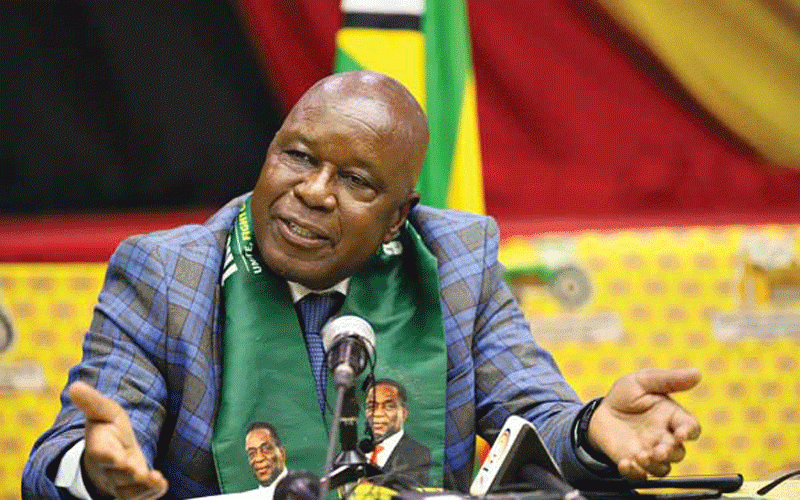
BY David E. Harrison John died recently in Harare. He was born in 1937, in Bulawayo.
He began work as an electrical engineer, having been selected and sent to the United Kingdom for training.
After returning to the country he read for the BSc Economics degree at the University of Rhodesia and Nyasaland and then joined The Herald as financial correspondent, and became financial editor.
He subsequently was appointed chief economist at First Merchant Bank. He started Robertson Economic Information Services (Pvt) Ltd in 1994 and became involved in analyses of business trends, commodity price movements and exchange rate changes from which he derived exceptional insights into Zimbabwe’s economic problems and needs. He engaged in many selfless ventures for the public good, including Rotary, and membership of numerous institutions such as the Economic Research Group.
Economic views John always responded freely and honestly to the local and international media.
He was horrified at the impact of the loss of the title deeds system for land tenure, which had sustained massive growth of the country’s agricultural sector for several decades.
Private land ownership tended to be rejected due to the historical context, but the system was necessary for agricultural productivity, as title deeds were irreplaceable as security for loans from banks.
“The current attempt to develop ‘contract farming’ has been a slight improvement, but it is merely shifted the lenders from banks to large corporations. It is less efficient and more complicated legally.”
- Chamisa under fire over US$120K donation
- Mavhunga puts DeMbare into Chibuku quarterfinals
- Pension funds bet on Cabora Bassa oilfields
- Councils defy govt fire tender directive
Keep Reading
Having written a book on Zimbabwe’s economic history John was disappointed that the manuscript was turned down by the publisher, who creatively suggested instead a work of fiction on Zimbabwe’s “as it would have been had the country operated with the benefits of hindsight”. He produced this book after detailed rewriting and much effort.
It is a fascinating fantasy about “what could have been” and it would be a brilliant handbook for any politician, worldwide, on mistakes to avoid and steps to take towards economic growth and prosperity in agriculture, industry, mineral production and education, for example. Subject to agreement of the heirs, and copyright regulations, I would be prepared to send a copy to anyone on request.
For an overview of John’s economic analyses and predictions, and the professional frustrations which he faced, please refer to the excellent recent interview held with him by Trevor Ncube on In Conversations with Trevor, which is available on YouTube. This is both historical and up-to-date.
John explains in depth and without jargon, his easy-to-understand economic principles for Zimbabwe’s successful growth to prosperity.
John was continuously frustrated that Zimbabweans were not taking up opportunities to compete more successfully with neighbouring countries. He constantly urged government to facilitate the ease and attractiveness of Zimbabwe for international investment.
He was always open and kind in responding to queries and was much depended upon by the media. John once attended a gathering at which a group of pensioners discussed, in his presence, their plans relating to financial investments.
Early the next morning, John contacted the hostess and said: “Please tell these people to delay their plans for a few weeks.” Those who followed his advice avoided the loss of huge portions of their savings and investments for retirement.
John spoke at numerous seminars and conferences where he presented factual data in sometimes disturbing graphs and tables. In measured tones he calmly replied to all queries, whether challenging, naive or inane. He was always polite and helpful.
Although he was often threatened, he was never physically attacked, and he bravely defended his independent and original ideas without backing away from controversy. His monthly seminars for a financial institution filled a large hall to standing room only, and he was a frequent contributor to events organised by Human Resources (Pvt) Ltd.
John cared profoundly about the people of Zimbabwe.
For example, he empathised deeply with the 350 000 Zimbabwean school-leavers who emerge each year “onto an employment market constrained by anti-management regulations, massive costs of dismissals and retrenchments, and, therefore, very few employment opportunities for our motivated and talented youth, who will not get jobs unless there is significant economic growth, which cannot take place if Zimbabwe is losing in the international competition for investment and ease of doing business. Throughout the world market forces are in control, and the success prospects of planned and controlled economies are fading myths.”
The progressive, expanding economies are those which tap into human motivation and talents and provide enough freedom for prosperity.
John once remarked, with wry humour: “Those who understand and believe me have no power, and those in power perceive no incentive to follow my recommendations.”
Youth in need of hope John believed that economic growth cannot take place quickly enough to meet the reasonable hopes and expectations of our youth “Yet there are ways of filling the gap. Look at the huge popularity, and associated wealth, of the very well-run Harare Athletics Club. Thousands train for and hundreds of runners register and compete in road races for relatively small prizes.
I would recommend a national network of such endeavours as school-level small business competitions, sports events, young farmers’ clubs etc all of which could hold competitions for prize money, and for private sector support in the form of start-up premises for category winners in small-scale manufacturing, crafts, arts and horticultural activities. Government would be amply rewarded for supporting such events and the youth would be encouraged by possibilities of scholarships in developed countries, based upon sporting prowess, but linked to opportunities for educational and careers advancement.”
An economic Cassandra John was known for his factual jargon-free and clear economic analyses, his calm, courteous and helpful demeanour, and the control under which he restrained his frustrations and seldom being believed.
Many of John’s warnings on inflation, exchange control and the impacts of disincentives to invest have come true. Other predictions are manifesting at the moment. John was fated to be an economic Cassandra — the Trojan prophetess cursed by Apollo to always make true predictions, which were never believed!
John passed away in relative poverty, having moved from his family home to a retirement complex, and unable to fund repairs to his old car. He was a truly great Zimbabwean.











